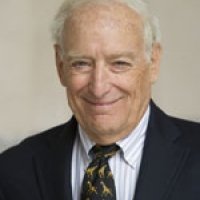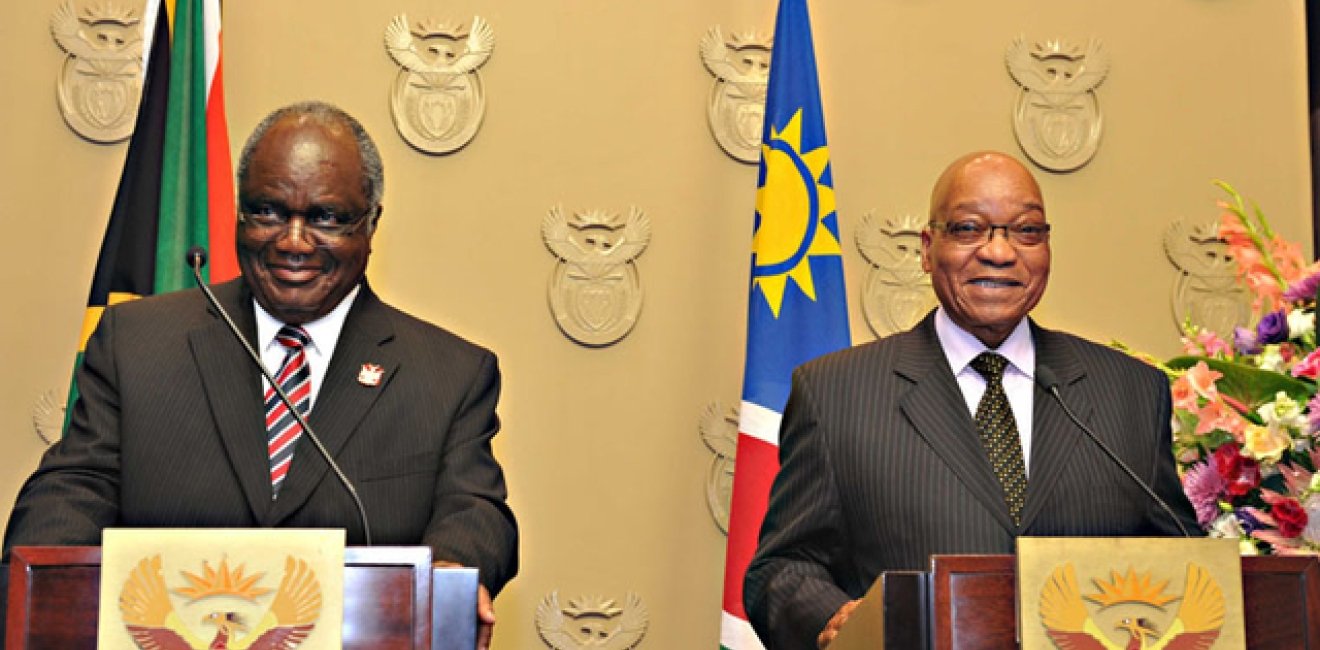
A blog of the Africa Program
Responsible, committed, honest leadership is rare in sub-Saharan Africa. Yet, good leadership establishes good governance in the many parts of the developing world (like most of Africa) that do not yet possess fully formed functional political institutions. In too many countries the persons (nearly all men) who preside largely run the show and brush democratic procedures and pieties aside.
A prize is born
Agreeing with this diagnosis, Mo Ibrahim, a Sudanese cell phone magnate, decided in 2007 to attempt to strengthen leadership in sub-Saharan Africa by providing big prize money to encourage heads of state in Africa to rule well and leave office at the end of their constitutionally permitted (usually) two terms. In 2007, its first year, his foundation gave its prize tof Joaquim Chissano, the outgoing and successful president of Mozambique. The next year it managed to award its prize to the very worthy Festus Mogae of Botswana, president of sub-Saharan Africa's only enduring democracy and its unquestionably best-governed nation-state.
Then there were bare years, with no one deemed acceptable for the prize until 2011, when Pedro Rodrigues Pires, president of the tiny but well-governed Lusophone island state of Cape Verde, was justly given Ibrahim's supreme leadership accolade. Three more years passed, with turmoil and coups in much of Africa, and no possible winners of the prize.
The unsung leader
Finally, early this month, the Mo Ibrahim Foundation anointed President Hifikepunye Pohamba of Namibia, another thinly-populated country, as a leader deserving of the prize amount of $5 million ($500,000 a year for ten years, and $200,000 a year thereafter). A 79-year old sometime revolutionary who was a political prisoner when South Africa controlled what was Southwest Africa (a onetime German colony, then a League of Nations mandate, and finally a UN Trust Territory). Pohamba was an early member of the Southwest Africa People's Organization (SWAPO) and a follower of Sam Nujoma, its head and Namibia's first president after it became free in 1990. Nujoma chose Pohamba, previous minister of home affairs and minister of fisheries, to succeed him in 2005. Both are Ovambo, members of Namibia's dominant majority ethnic group.
The Ibrahim Foundation selected Pohamba, it said, because he had "boosted governance, media freedom, and human rights," as well as running a country without conflict or troubles. It also is the 6th best governed country in Africa according to the Index of African Governance, after Mauritius, Cape Verde, Botswana, South Africa, and the Seychelles. It ranks ahead of Ghana and Senegal, but its numerical score of 70 (of 100) places it far behind Mauritius' 82 and Botswana's 76. Since 2007, when the Index was first published, Namibia has always ranked among the top ten African countries. Annual GDPs per capita have also increased from $3300 to $5700. Life expectancy has also improved from 55 to 64.
Other relevant measurement schemes also esteem Namibia, if slightly less positively than the Index of Governance. Transparency International's Corruption Perception Index ranks Namibia 55th least corrupt (out of 175) globally, and 5th in Africa behind Botswana, Cape Verde, the Seychelles, and Mauritius in sub-Saharan Africa. On the World Bank's Control of Corruption indicator, Botswana scores 79 of 100 and Namibia 65, with poorly run sub-Saharan polities much lower on both scales. Freedom House's Freedom in Africa praises Namibia, too, rating it "free" as opposed to "partly free" or "not free," the fate of most of the countries in sub-Saharan Africa.
Did the Ibrahim foundation make the right choice?
The extent, however, to which Pohamba can take credit for these favorable results is questionable. He has been a very lackluster president of his country, and much of the progress which the ranking systems and the prize committee has noticed is largely either Nujoma's doing or the product of other effective hands within the SWAPO ruling party. Human rights advances have been made despite official opposition. Having a free media has been achieved, too, by strenuous local efforts, certainly not thanks to a benign government. No one within Namibia would have imagined a leadership prize going to someone of Pohamba's limited accomplishments and relatively low profile.
Indeed, if anything, Pohamba should be acclaimed for what he chose not to do, not for what he did. SWAPO has now transformed itself, thanks in part to Pohamba's refusal to oppose change, into southern Africa's first democratized liberation political party. Unlike the African National Congress in South Africa or the Zimbabwe African National Union – Patriotic Front in Zimbabwe, over the course of 2014 SWAPO underwent a quiet internal revolution. No longer were Ovambo, the dominant ethnic group, guaranteed the top spots. Nujoma's son, a potential heir to Pohamba, was pushed aside. In fact, SWAPO decided at two consecutive party congresses to be guided by the wishes and votes of members, not by an outgoing president.
As a result, Hage Geingob, 74. assumes Namibia's presidency on March 21, after serving as prime minister and being exiled briefly by Nujoma. Geingob is a Damara, one of the smaller ethnic entities in Namibia, and received a British Ph. D. in 2004 for a thesis on how to promote good governance in Namibia. He was one of the founders in 2004 of the African Leadership Council.
Geingob will lead a cabinet composed of persons of several ethnic backgrounds, many of whom were overlooked by the Nujoma and Pohamba administrations. If all goes well, Geingob will be able to put his thesis recommendations in place and, a decade from now, be a candidate for the Ibrahim Leadership Prize. If so, he will be able to thank Pohamba not for being a visionary leader, but for his willingness not to interfere too much in the running of his party and his country.
This article was originally posted in the Toronto Globe and Mail
Robert I. Rotberg is a Fellow at the Wilson Center, Senior Fellow at the Centre for International Governance Innovation, and the Founding Director of Harvard Kennedy School's Program on Intrastate Conflict.
Photo courtesy of GovernmentZA via Flickr commons
Author

Founding Director of the Intrastate Conflict Program, Kennedy School of Government, Harvard University

Africa Program
The Africa Program works to address the most critical issues facing Africa and US-Africa relations, build mutually beneficial US-Africa relations, and enhance knowledge and understanding about Africa in the United States. The Program achieves its mission through in-depth research and analyses, public discussion, working groups, and briefings that bring together policymakers, practitioners, and subject matter experts to analyze and offer practical options for tackling key challenges in Africa and in US-Africa relations. Read more

Explore More in Africa Up Close
Browse Africa Up Close
The Innovative Landscape of African Sovereign Wealth Funds



